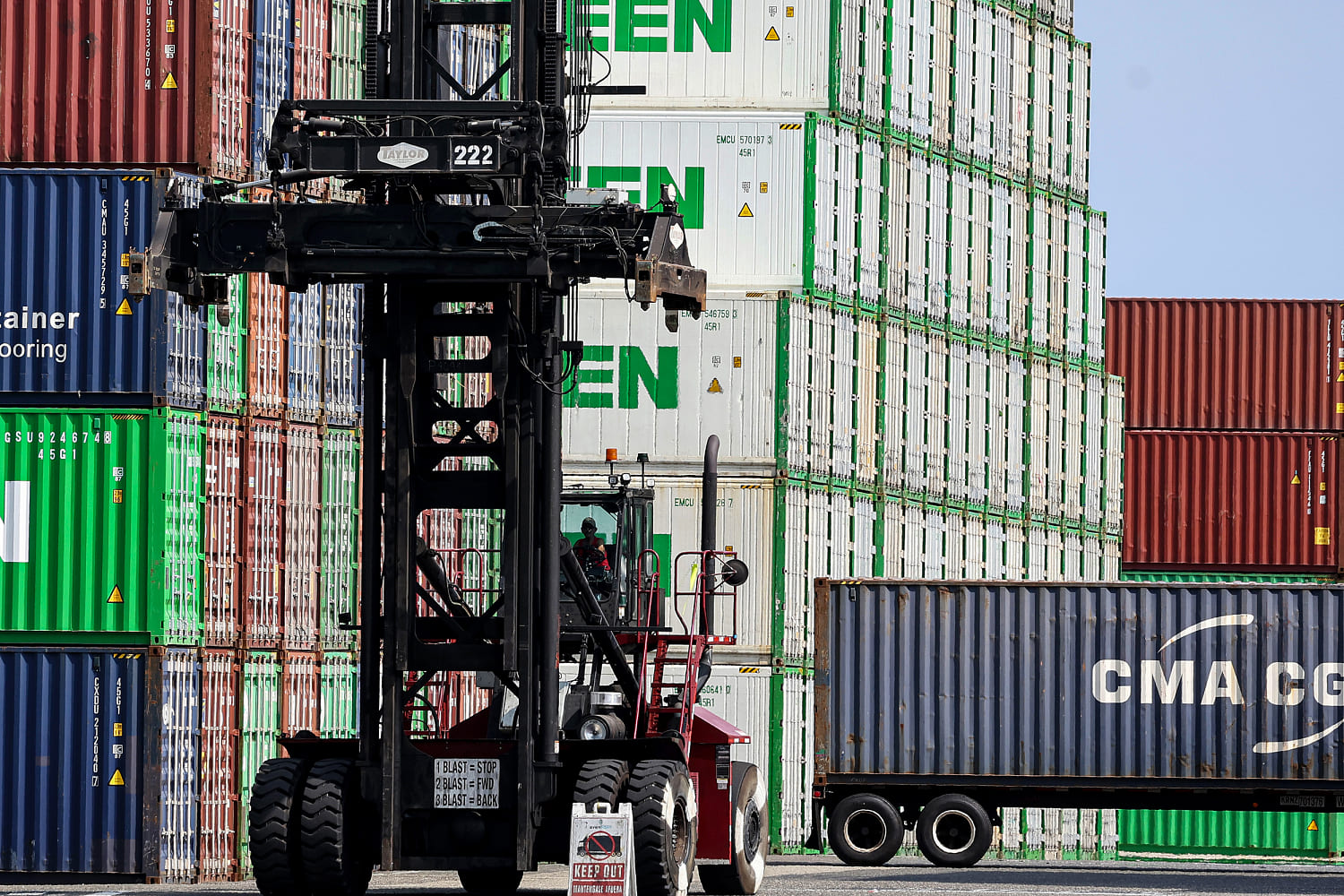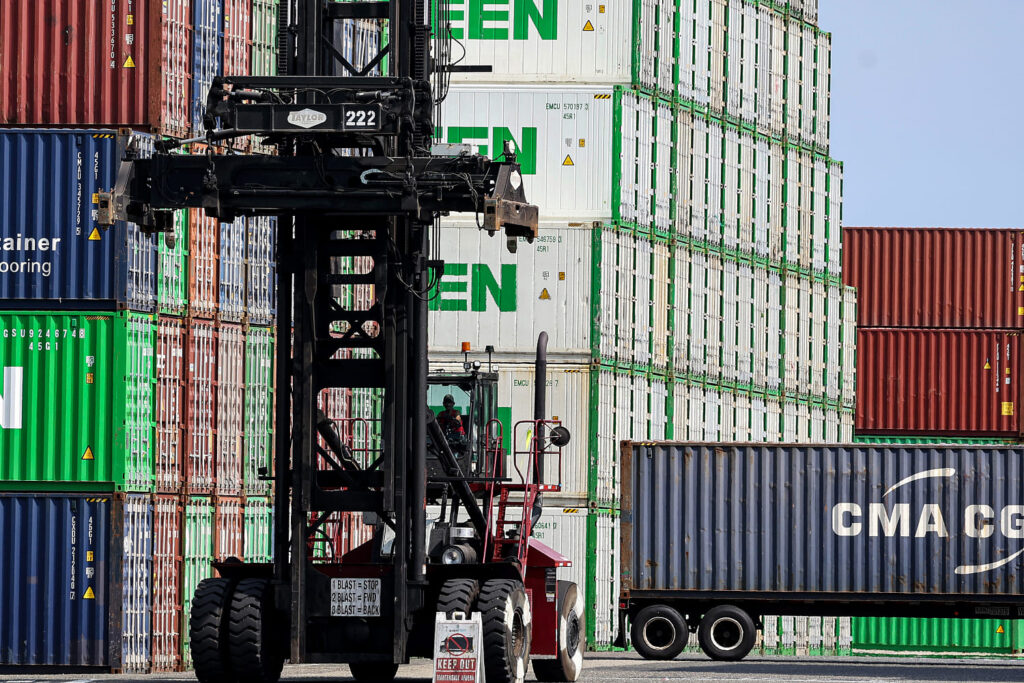
President Donald Trump has repeatedly criticized the nation’s trade deficit, which the Commerce Department reported Wednesday reached a new record high.
But the same Commerce report showed the value of American exports had also hit a new record, indicating there’s still strong demand for U.S. goods and services abroad.
A trade deficit simply means a country is importing more than it is exporting. As the Congressional Research Service reported in 2018, Trump’s fixation on reversing the deficit “contrasts with the views of most economists.”
Maintaining a deficit usually says little about the state of a country’s economy. The U.S. trade deficit reflects strong domestic growth and consumption, especially relative to the weaker economic performance seen in many parts of the world, including most other Western developed countries.
“Trade helps us to be better off,” said Vance Ginn, an economist and adviser in Trump’s first term. Whether it is sourcing goods that the U.S. no longer produces or which can be produced more cheaply elsewhere, large American import levels reflect strong demand from consumers for stuff — and the U.S. economy as a whole generally benefits from this arrangement, Ginn said.
Countries with large trade surpluses, such as China, Russia and Saudi Arabia, tend to be heavy exporters of natural resources with relatively lower rates of domestic consumption.
Trump has indicated he may prefer the U.S. to more closely resemble this group of nations. In his executive order last week laying out his new administration’s trade priorities, “investigating the causes of our country’s large and persistent annual trade deficits in goods” was the first item listed.
Asked what Canada and Mexico needed to do to avoid sweeping new 25% tariffs, Trump said Sunday, “They have to balance out their trade, number one. We have deficits with almost every country — not every country, but almost — and we’re going to change it.”
Because Americans tend to buy more and save less than those ib other countries, a deficit persists. Economists are nearly unanimous that Trump’s call for tariffs to reverse the deficit would raise costs for U.S. consumers — and the president himself recently acknowledged their imposition would likely lead to “pain” for some time.
Trump often cites William McKinley, a former U.S. president who, as a congressman, helped implement massive trade duties, as his lodestar for how he believes the U.S. economy should be run. McKinley was indeed successful in raising large sums of money for the U.S. government several decades before the first national income tax was implemented.
However, by the time McKinley was sworn in as president in 1897, the country’s transition from an agrarian to an industrialized economy had accelerated, and he ultimately abandoned the use of tariffs in favor of reciprocal trade agreements.
There may have been a point in the 1980s and 1990s when America’s widening trade deficit began to cause problems again. In testimony before the U.S. Senate in 1998, Robert Scott, an economist with the left-leaning Economic Policy Institute, said trade imbalances had likely contributed to 2 million manufacturing job losses between 1979 and 1994, with hundreds of thousands resulting from the 1992 North American Free Trade Agreement alone — a pact Trump repeatedly criticized before replacing it with the United States-Mexico-Canada-Agreement in 2018. His latest volley of tariffs would contravene that very deal, which is up for review in the middle of next year.
Along with the lost jobs was the effect on wages, Scott said. Since 1979, Americans’ inflation-adjusted earnings have risen only by 12%, even as the size of the overall U.S. economy has grown exponentially during the same period. Wealth inequality, too, accelerated during this time.
The Wall Street Journal’s right-leaning editorial board has noted the “contradictions” of Trump’s economic policies.
“Mr. Trump likes tariffs and wants more of them, but he also wants a weaker dollar to promote U.S. exports, and the two desires are in conflict,” it said this week.
Most economists, left and right, believe that at this point, it would be extremely difficult to bring back a meaningful number of manufacturing roles — and that those that still exist currently benefit from lower trade barriers and, in some cases, recent federal programs designed to prop up key industries like semiconductor manufacturing.
“It would be better if Mr. Trump and his crew dropped the strong dollar-weak dollar chatter and focused on a stable dollar,” the Journal’s editorial board wrote. “That’s what inflation-weary Americans elected the President to do.”
